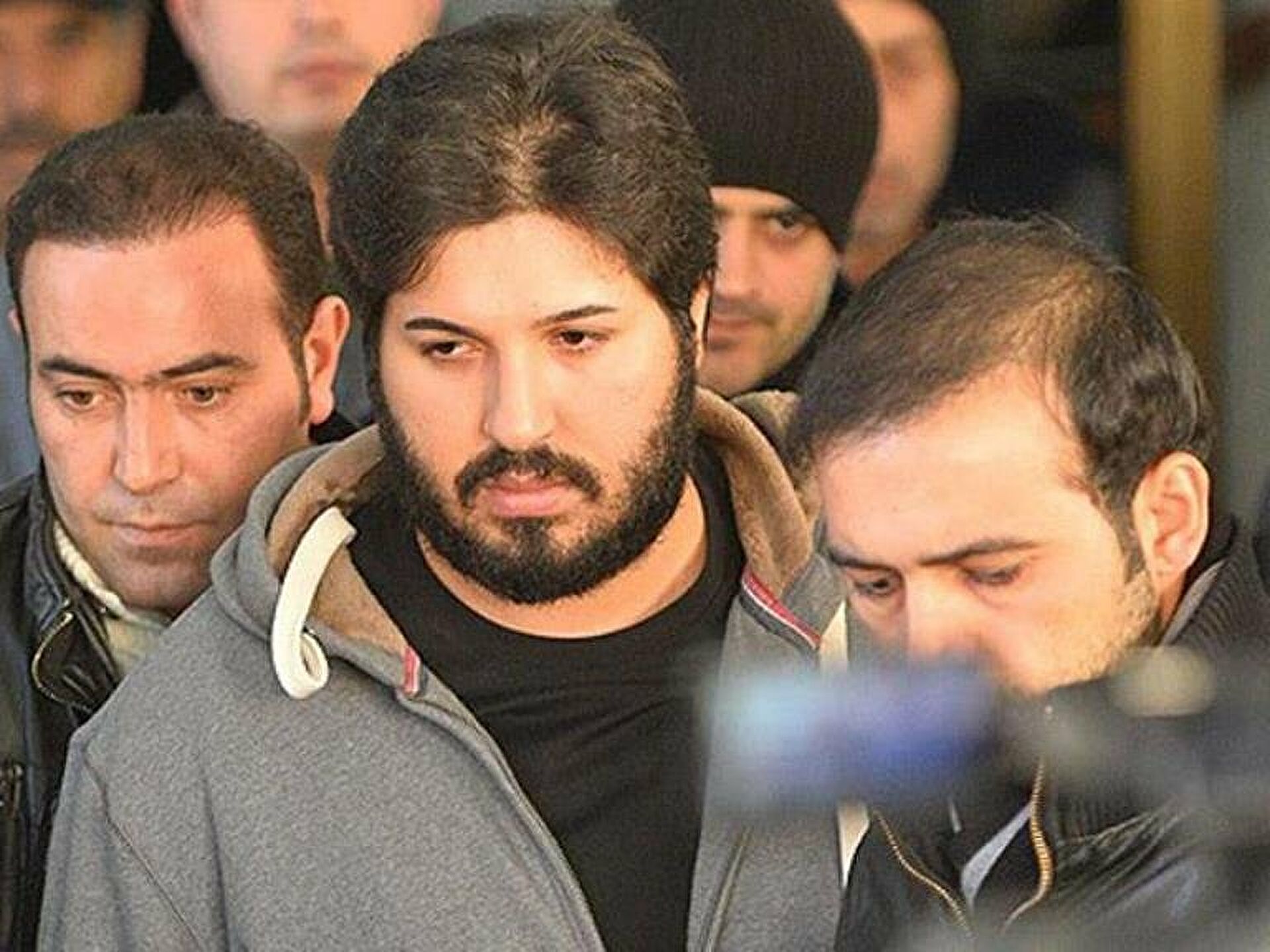Facing 130 years in prison, infamous Turkish-Iranian money launderer Reza Zarrab took a plea deal in 2017 agreeing to testify in U.S. courts. Federal officials have since kept him out of the spotlight, while allowing him to lead a government-sanctioned life of luxury under a false identity in Miami.
But the man who made his fortune cleaning profits from sanctions evasion and dealing with companies tied to slave labor and organized crime has been anything but idle.
An investigation by the Organized Crime and Corruption Reporting Project, Law&Crime and the Miami Herald found that Zarrab remains connected to his former criminal network and has received multiple unusual wire transfers from Turkey. Using fake identities, he’s invested in thoroughbred horses and a palatial equestrian facility, entering an industry rife with fraud and money laundering.
U.S. officials declined to comment when asked if they have concerns about his activities or if he’s surrendered a dime of his fortune.
Dubbed the “The Turkish Gatsby” by media there for his playboy lifestyle, Zarrab ran a vast money-laundering operation that channeled funds to Iran in violation of U.S. sanctions against the Persian Gulf country. U.S. prosecutors offered a conservative estimate that his network moved at least $20 billion from 2010 to 2015 alone. Zarrab pleaded guilty to various charges related to fraud and money laundering.
Reporters tracked Zarrab, 38, to Miami’s Coconut Grove, where he has been living in a $3.6 million condo in a luxury high-rise that affords panoramic views of yachts that crowd the shores of Biscayne Bay.
In July, OCCRP and Law&Crime reporters watched Zarrab as he paced the parking lot of the Park Grove condominiums, talking loudly on his cell phone in Turkish. After several circuits of the area — watched over by a trio of gold-colored statues of men in “See No Evil,” “Hear No Evil,” and “Speak No Evil” poses — he was whisked away in a chauffeur-driven Cadillac Escalade.
Turkey has already seized some of Zarrab’s assets, and he is expected to forfeit more to the United States when he is sentenced. That won’t happen until after the trial of Turkish state bank Halkbank, however, and it’s unclear when that will be. In the meantime, Zarrab can afford a lavish lifestyle — some of it funded by the wire transfers from Turkey.
“I’ve long been concerned with how the Justice Department handled this case, and the appearance of political interference on behalf of Turkey influencing the department’s decision-making,’’ said U.S. Senate Finance Committee Chairman Ron Wyden, D-Oregon, referring to the Halkbank prosecution, where Zarrab is expected to testify.
“This was the largest sanctions-evasion scheme in U.S. history, and the possibility that the U.S. financial system is being used to facilitate improper transactions for Reza Zarrab and other co-conspirators implicated in the scheme deserves the immediate attention of U.S. officials.”
Two Zarrab defense attorneys — one of whom has allowed Zarrab to use his car and credit card — said their client is living up to his plea deal and “all material aspects” of his activities are known to the government.
Zarrab did not respond to interview requests made through his legal team.
Ties to His Old Life
Just over a week after Zarrab’s 2017 plea deal, corporate records show that a key member of his inner circle, Iranian businessman Amir Fathrazi, started a new Turkish company.
Its founding chairman was Sami Al-Bazz, the brother of a Turkish lawyer who relocated to New York to help with Zarrab’s defense in December 2017. People familiar with the money launderer’s affairs say that lawyer, Şems Al-Bazz, now works as Zarrab’s personal administrative assistant in Miami. She did not respond to requests for comment.
Neither Fathrazi nor Al-Bazz has been charged.
Fathrazi was a shareholder in Royal Holding A.S., which Zarrab used to launder billions of dollars for Iran, and his family is closely aligned with Zarrab’s.
OCCRP identified at least a dozen companies in Iran that involved Fathrazi, his father, or another relative as directors alongside members of Zarrab’s immediate family in Iranian corporate records. At least six are now active.
The new Turkish company, Amir Al Gayrimenkul Yatırımları Anonim şirketi, is on paper a real estate investment firm. But like dozens of shell firms Zarrab used to move illicit money, it shows no signs of real business activity. Only scant details of its business affairs appear in public records, and the company has no website or online presence.
Sami Al-Bazz told OCCRP that Zarrab has no connection to the business in Turkey.
“It’s just real estate, but I don’t want to comment about my business,” he said in a brief telephone conversation.
Multiple attempts to reach Fathrazi by telephone and text messages to his business or individually were unsuccessful.
Zarrab was still a teenager when he partnered with Fathrazi in 2003, according to records for their Turkish jewelry business, Zafer Kuyumculuk. Turkish law enforcement later identified one of its directors, Ertugrul Bozdoğan, as part of Zarrab’s criminal organization. He could not be reached for comment.
In 2013, a decade after partnering with Zarrab, Fathrazi established a gold refining business in Iran with Zarrab’s father, Hossein. Three months earlier the elder Zarrab had been fined $9.1 million by the United States in relation to a money exchange in the United Arab Emirates, which prosecutors later identified as integral to Reza Zarrab’s money-laundering scheme.
Peter Sprung, a retired assistant U.S. Attorney who handled complex criminal cases in the Southern District of New York, said Zarrab’s apparent continued contact with former colleagues could cause big problems for prosecutors who plan to use him as a witness against Halkbank.
To read the full article: https://www.yahoo.com/news/money-launderer-iran-dubbed-turkish-120000184.html
